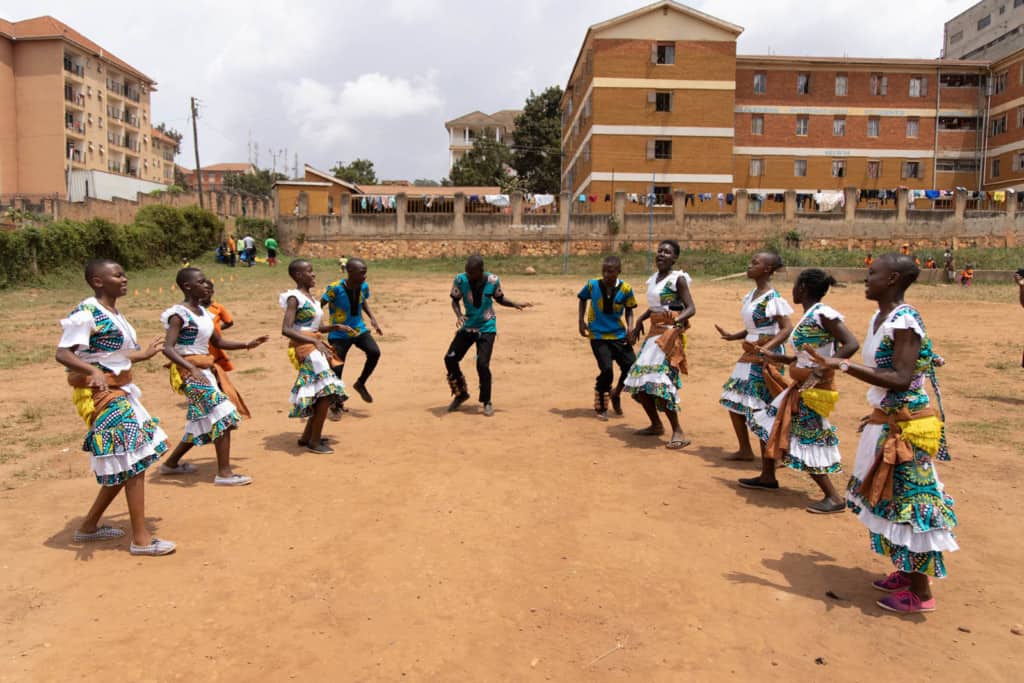
If Uganda isn’t already on your bucket list of travel destinations, it definitely should be. While you’re there, you can walk through the streets of the beautiful and bustling capital city of Kampala. You can adventure through Bwindi Impenetrable National Park, whose thick, green canopies truly allow the park to live up to its name. You can see elephants, lions, giraffes and gorillas from the back of a safari vehicle. And best of all, you can meet the beautiful people who make up this pearl of a country.
While you’re in Uganda, you will also see the reality of poverty that the country continues to face. To this day, Uganda struggles with extreme poverty, child malnutrition, poor sanitation, access to electricity and education completion. But, despite the challenges it faces, Uganda has made great progress and has so much hope and goodness to share with the world. That’s why we’d like to share some fun facts about Uganda with you today. As you read this blog, may you be filled with hope and an even more profound understanding of what life is like for the nearly 126,000 Compassion-assisted children who live there.
Key Facts About Uganda
Here are some quick, interesting facts you should know about Uganda.
- Population: 43,252,966
- Capital: Kampala
- Official language: English and Swahili
- Area: 93,065 square miles, which is slightly smaller than the state of Oregon
- Economy: Agriculture is one of the most important sectors of the Ugandan economy. In fact, 72% of the workforce is employed in agriculture. Top agricultural products in Uganda include coffee, tea, cotton and flowers, which also are some of the country’s top exports. Other important industries include sugar processing and cement and steel production. While Uganda’s economy has improved in recent years, 21.4% of the population still lives below the poverty line.
Culture and Traditions of Uganda
Some of the most fun facts about Uganda center on the country’s culture and traditions. Uganda is home to many ethnic groups and dozens of different languages, making its culture both interesting and diverse. It’s also a nation filled with religious history, colorful clothes and close family ties. Let’s jump in!
Religion: While Uganda is a predominantly Christian nation, the country’s constitution provides for religious freedom. Currently, 45.1% of the population identifies as Protestant, 39.3% as Catholic and 13.7% as Muslim. The rest of its people either practice an Indigenous religion or are not religious. Islam was the first outside religion to be brought into Uganda. Then, during the colonial period, Protestantism and Catholicism were brought into the country by missionaries. Rivalry, and at times hostility, has been sharper between Protestants and Catholics than it has been between Christians and Muslims.
Clothing: Ugandan clothing is representative of the country’s population — it’s diverse. If you visit Uganda, you’ll see lots of different styles represented. Wealthier people tend to dress in modern Western fashion while other less-affluent people often dress more traditionally. The “kanzu” is a traditional item of clothing for men. It’s a long tunic that’s often white or cream in color. It was originally brought to Buganda, a kingdom presently located in southern Uganda, by Arab traders in the 19th century. However, now men all over the country wear kanzus. For women, the most famous traditional clothing item is called a “gomesi.” A gomesi is a long dress that has triangular shoulder pads, a square net and a cloth hanging from one hip. While women all across Uganda wear gomesis, they also originated among the Baganda and Basoga people.
General culture: Uganda is made up of many different ethnic groups that influence the culture. The largest group is the Baganda (the people of Buganda, also called the Ganda), which makes up 17% of the population. They mostly live in the southern part of the country. Historically, the country has struggled with ethnic divisions. But today, relations between the different groups are relatively harmonious. There are common interests, like football (soccer) and cricket, and common values, like the importance of family and lineage.
Music and Dance of Uganda
With the many different ethnic groups and languages found in Uganda comes a variety of musical traditions and preferences. There are so many different traditions that we could write a whole blog post about them! So, we’ll just start by sharing a couple of Uganda’s most famous music and dance customs today.
“Ekitaguriro” is the main traditional style of music in western Uganda. It originates from the Banyankore people. The main instruments used in ekitaguriro are the “omukuri” (flute) and the “engoma” (drum). The ekitaguriro music and dance honor the longhorn cattle found in this region. It is danced by both women and men. The dancers follow the beat of the drum, mimicking the foot sounds, rhythms and movements of the beloved cattle.
In central Uganda, which is mostly inhabited by Baganda people, common musical instruments include the “ngalabi” (a long, round drum), the “endongo” (a harp-like instrument) and the “adungukadigindi” (a fiddle). “Baakisimba” is one of the dances performed in this region. The dance mimics the drunken movements of the king who ruled the Buganda region in the early 1800s. At the time, referring to a king as “drunk” was taboo, so people simply said he was “happy” and began mimicking his swaying movements. The tradition still holds, and the Baganda people still dance the baakisimba today.
Food and Drink of Uganda
The food and drink of Uganda is simply delicious. Most Ugandan people only eat two meals each day: lunch and dinner. It’s not uncommon for breakfast to be only a cup of tea or porridge. Food staples include bananas or plantains, millet, cassava, sweet potatoes, chicken and beef and more. Many of these ingredients you’ll find in the popular food and drinks listed below.
Matooke is a traditional Ugandan dish. Many Ugandans eat it every day. Matooke is not only the name of the green banana but also of a savory dish. The dish is made by peeling the green bananas, which haven’t yet become sweet, and cooking them in water or steaming them in banana leaves. It’s a little bit like mashed potatoes, just made with bananas! Learn how to make your own matooke with peanut sauce today!
Luwombo is another popular, traditional dish made in Uganda. It is a stew-like meal made of meat (such as chicken, beef or fish) that is soaked in peanut sauce. Sometimes vegetables like mushrooms, potatoes or carrots are added. Then, the ingredients are wrapped up in banana leaves and steamed for hours. Often, luwombo is served with matooke!
Mandazi is a yummy treat that Ugandans — and many other Africans — love to eat. Essentially, it’s an African doughnut. It is fried bread that is often sweetened with coconut milk and shaped into triangles or circles. Sometimes cinnamon and sugar are added to make them extra tasty. You can eat them by themselves or dip them in tea or juice. Sounds yummy, right? Learn how to make your own mandazi!
Tea is not only one of the Uganda’s most important agricultural products and exports, but it’s also a popular drink! However, when ordering a cup of tea in Uganda, just know that it often comes spiced. Ginger tea is particularly popular!
A Story From Uganda
Margaret* was heartbroken when she learned that her daughter Rita* was HIV-positive. The devastating news was yet another blow to the single mother. Over the years she had endured the deaths of two husbands, her parents and her four siblings. She felt bitter and wondered if God had abandoned her.
But Margaret didn’t realize that her life was about to completely change, all because of her daughter …
Before Rita received an HIV diagnosis, she had registered in her local Compassion program. At her child development center, she learned about Jesus and accepted him as her Savior.
So, as her mother spiraled into a depression after her daughter’s diagnosis, Rita’s faith continued to grow because of her decision to follow Jesus. She inspired everyone around her, including her mother. And thanks to her persistent love for God, Rita led her mother to give her life to Christ too.
“I wanted to have the kind of peace she had,” says Margaret. “Therefore, in June 2019, I publicly confessed Jesus Christ as my Lord.”
So today, even though Margaret and Rita have HIV, they are filled with hope.
“I feel better because of the hope arising in me,” says Margaret. “I want to persevere through all kinds of situations, trusting God and knowing that it is only God that I can hold on to. I want to use my little strength to mother Rita to usher her to the future that God has prepared her for.”
What a beautiful reminder that no matter how young you are, you can further the kingdom of heaven.
*Names were changed to protect their identities
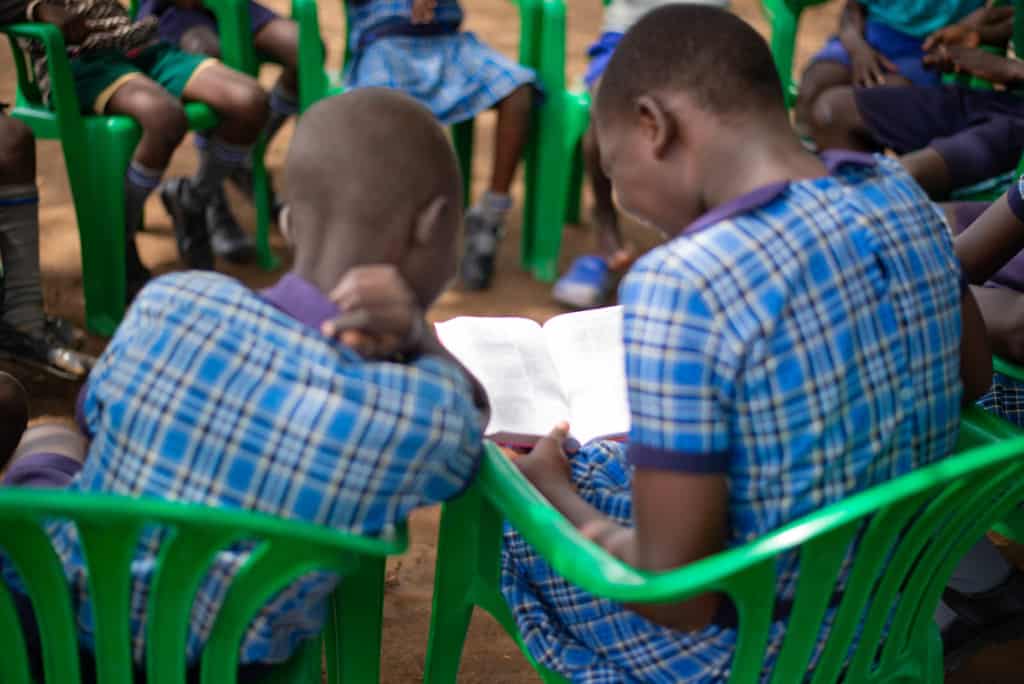
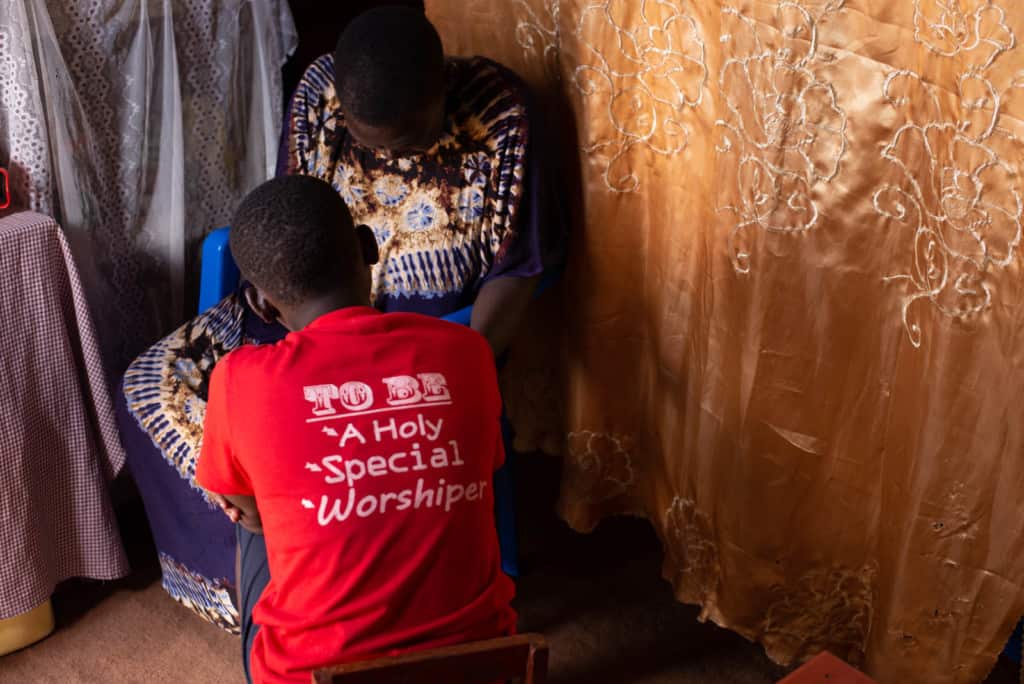
BONUS: Fun Fact About Uganda
Uganda is home to one of the smallest church buildings in the world. It’s located on Biku Hill in western Uganda. It is only about 8 feet tall and 8 feet wide. It can fit only three people, including the pastor, and is often used for prayer and meditation.
Photos of What Daily Life is Like in Uganda
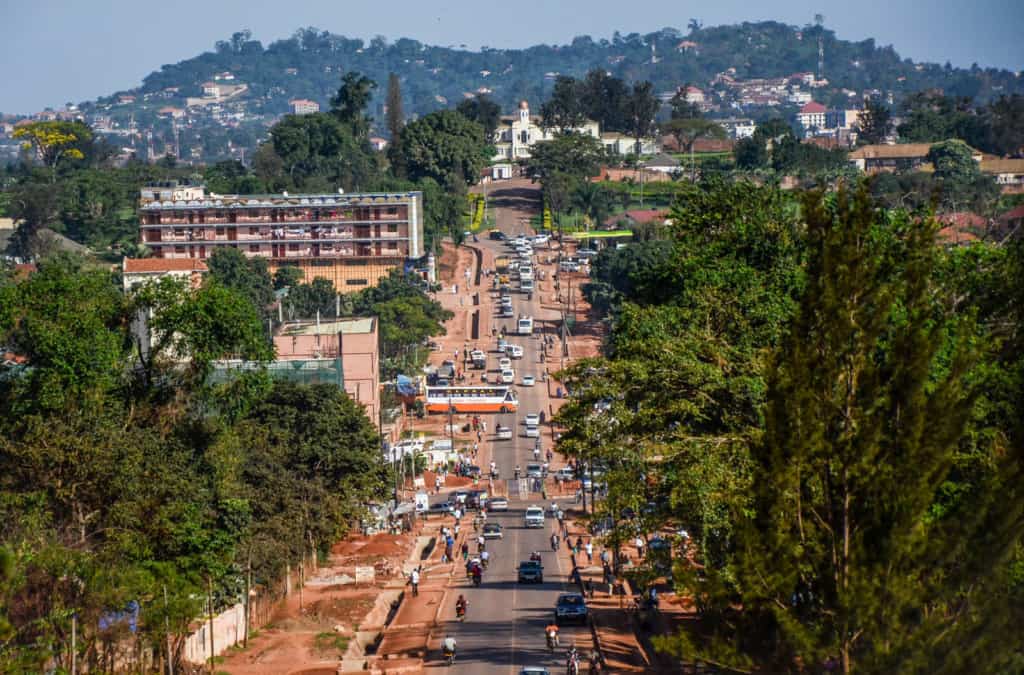
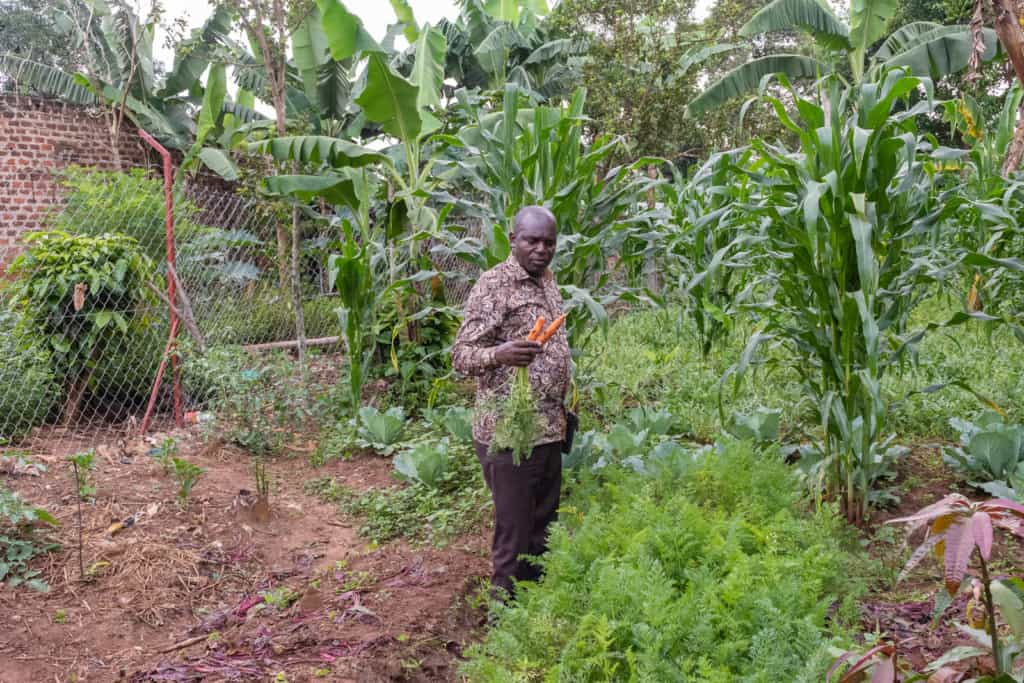
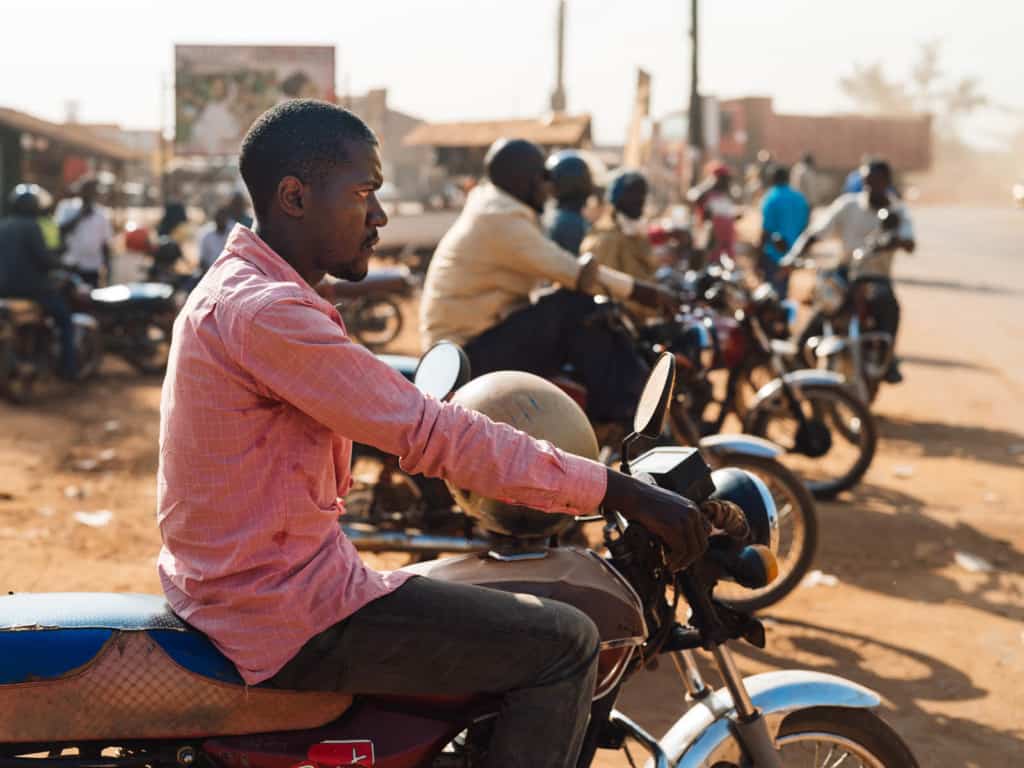
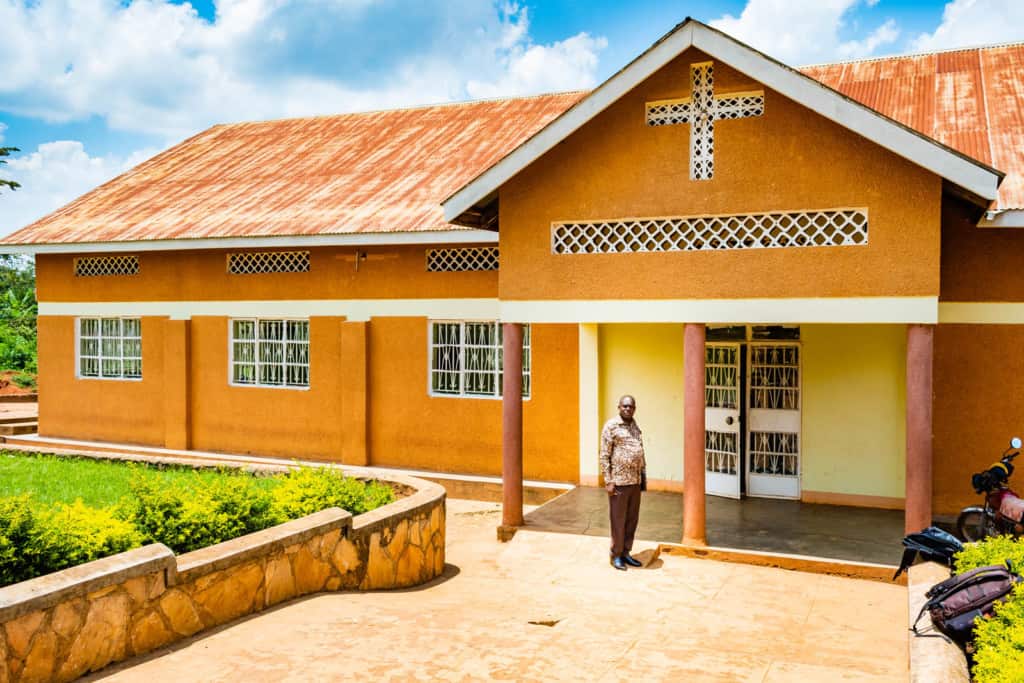
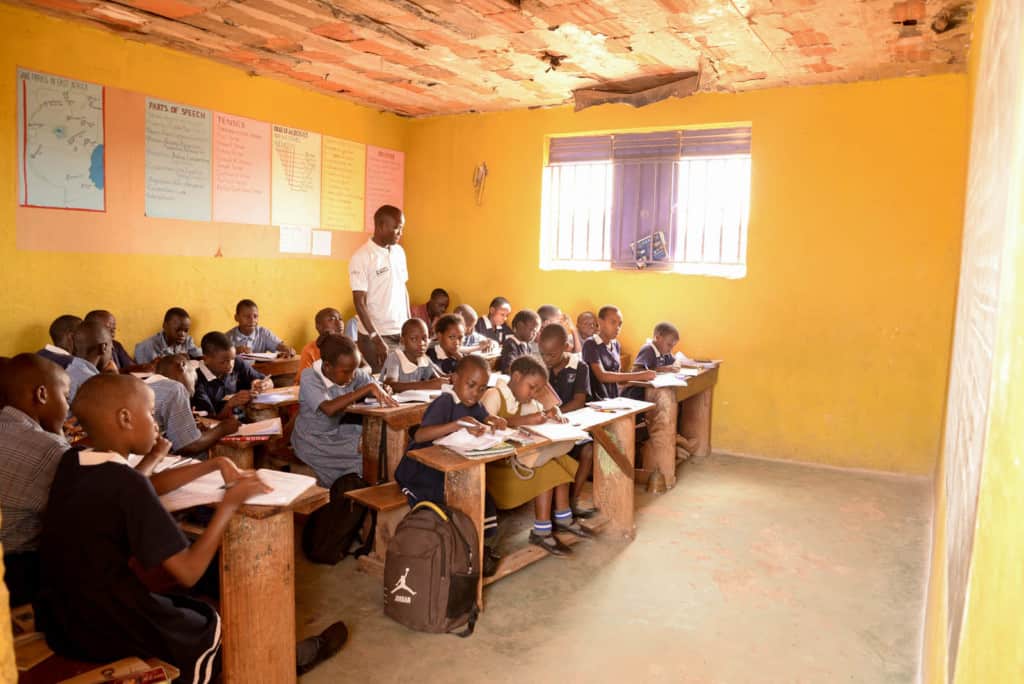
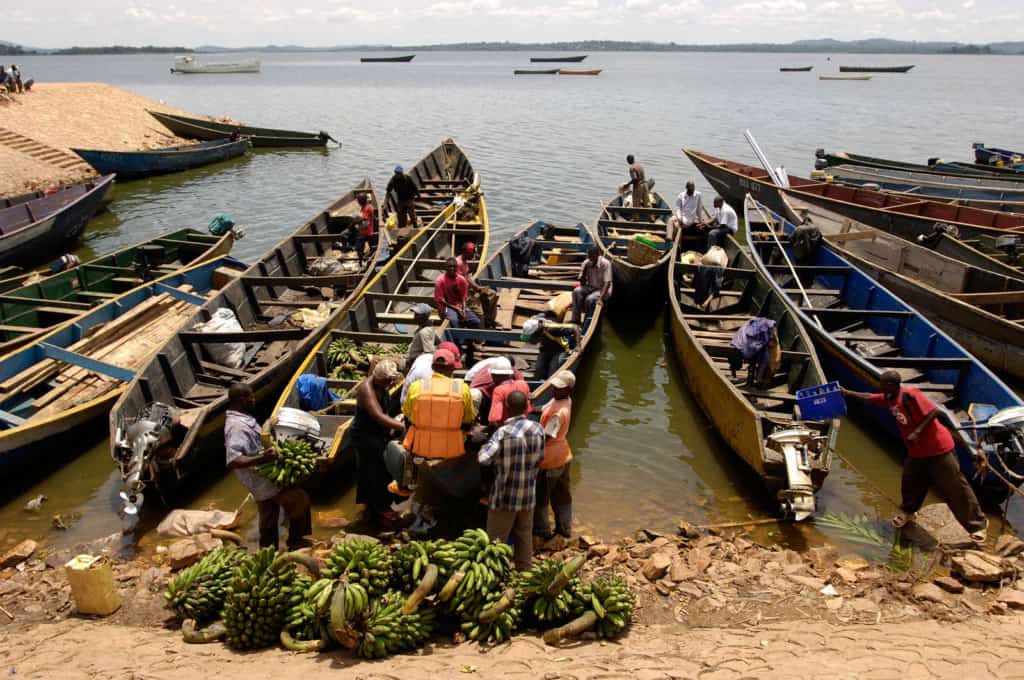
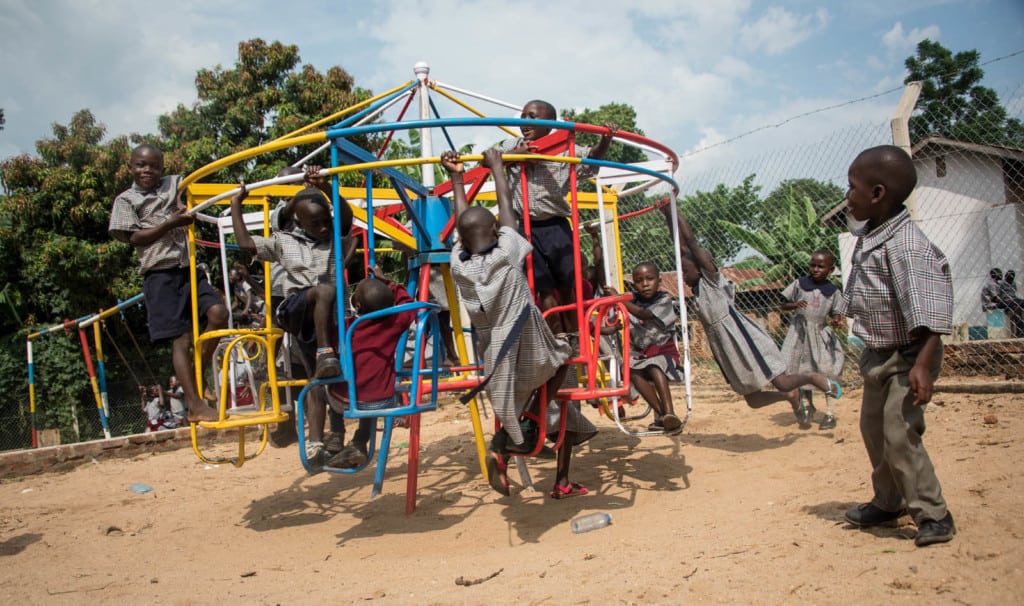
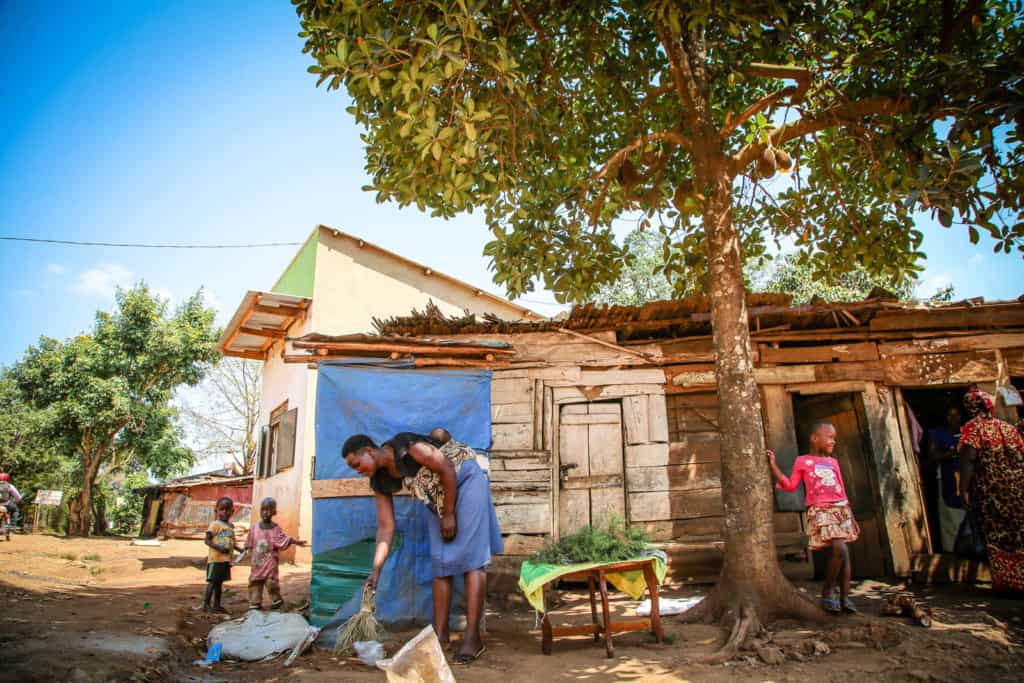
Do you want to keep learning about the beautiful country of Uganda?
Facts About Compassion and Uganda ›
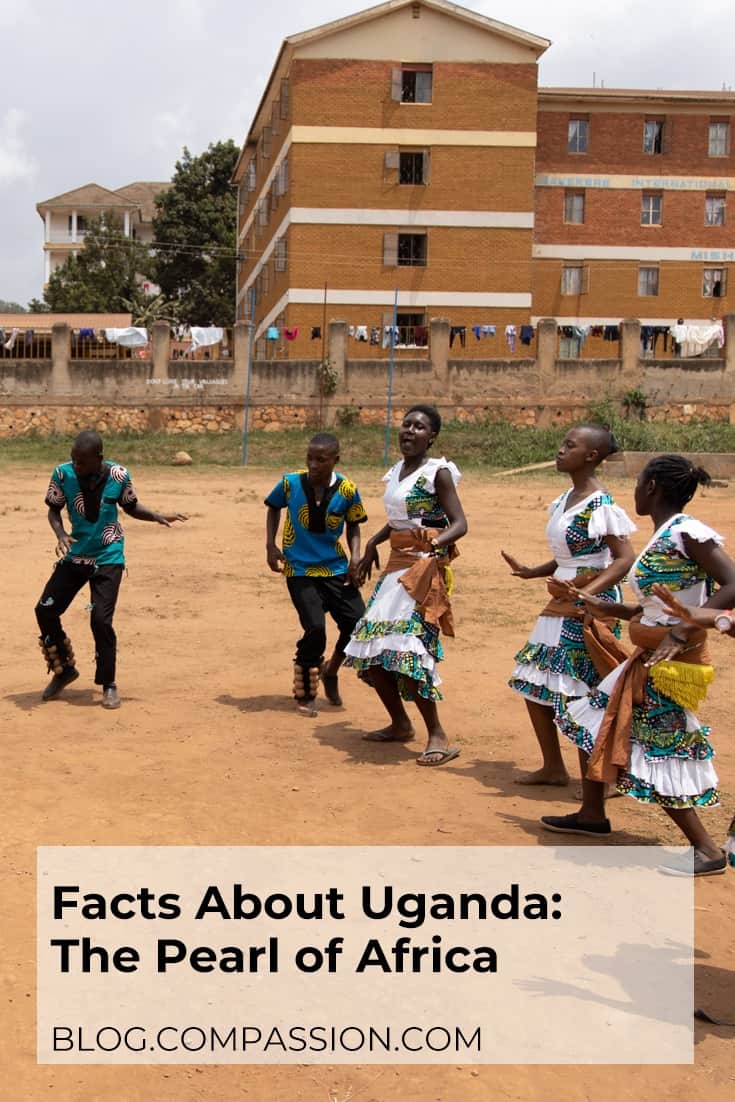
This is the final article in our blog series featuring facts about countries where sponsored children live. Read all of them here!

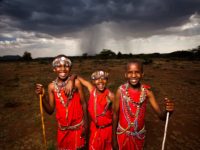


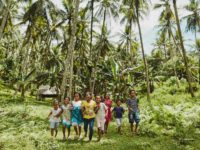


24 Comments |Add a comment
I have a sponsored child in Uganda. When do they ‘graduate’ from the Compassion program?? I want to encourage him to stay in the program as long as possible, but due to him being over 18 I’m not sure how much longer that is. He has mentioned many of his friends dropping out during the pandemic.
Justin, thank you so much for sponsoring a young man in Uganda! I wanted to let you know that the maximum age for youth to stay in the program in Uganda is 22 years old. This is so they can receive the best help, including vocational training or assistance with University.If you would like to know his estimated graduation, we would be happy to check the for you! If you would like us to do this, you can email our team at [email protected]. Thanks so much! ?
Thanks for sharing about Uganda, and what ever shared is truly correct. Am a Ugandan, currently living at Masaka city (Uganda) but lived in Kampala for sometime.
#Is there anyway we can do volunteering in Uganda as our support to the mission
Am hoping to do some sponsoring in the shortest time if all goes well
Hi, Ssegirinya! Thank you for reaching out and for your encouragement! Would you kindly send as an email to [email protected], so we can discuss the volunteering and sponsorship questions that you have? Blessings to you!
Hi.
About a year and a half ago I was friended on Facebook by a guy who is operating a school and orphanage in western Kampala.
I spent several weeks trying to get a hold of the Kampala office of Compassion.
Then the pandemic happened.
I’ve been able to maintain contact with this guy, but I have not been donating to him. At this point I’d really like to speak to someone at the Kampala offices, and see what would it take to set his orphanage up with Compassion.
Thank you.
Hi Steve,
This is so kind of you to have this desire to help this man and the children of his orphanage. We would need to speak with him directly to gather some information and see if his orphanage would qualify for what we are able to do. Can you please have him email my team directly at [email protected]? Thank you so much!
Thx for details from these countries, we have children in each. We would love to have any word from our child Benjamine
in Togo. It has been over a year since we have heard from her. Please can you help us?
Sam & Jackie kiser
Hi Sam! We truly appreciate your heart for our mission and the difference you’re making in your children’s lives. I completely understand and appreciate your eagerness to hear from Benjamine, especially since it’s quite some time since you’ve received a letter from her. Sadly, the pandemic has definitely caused many delays in letters being written, translated, and delivered. For several months, most students could not meet in person, and our wonderful field staff were safely delivering care packages. Regrettably, there has been a very long period of time where children simply were not able to write letters to their sponsors. The good news is that centers have slowly been able to resume their program activities, increase student attendance in phases, and begin letter-writing again. In normal circumstances, if you had not heard from a child in more than six months, we would send an inquiry to our national office to have the kiddo checked on. However, considering the challenges they are overcoming, we are not yet able to send inquiries. That being said, I do sincerely hope you will hear from your sweet Benjamine very soon. I encourage you to visit https://www.compassion.com/crisis/covid-19.htm to learn more about how Compassion is doing in the countries where we work. You have been a consistent and faithful writer throughout the past year, and I want to encourage you to continue blessing your children with your love and prayers! We are tremendously grateful for you and Jackie! If you have any additional questions or concerns, please email us at [email protected]. Thank you!
Thanks. It’s very helpful to learn more about the what the daily living conditions are for my sponsored child Trevor. It’s helpful to imagine what Trevors life is like.
Thank you for this in-depth, informative article on Uganda! I feel like I got a much better flavor of the country than I had before.
Thanks for the information on Uganda. I always enjoy leaning more about the culture and customs as I sponsor a precious and beautiful child there. I will continue to pray for the people of Uganda, the Compassion workers in Uganda, and most of all the children whose lives are being impacted by the Gospel.
Sarah, I have friends in Kampala. Things according to them are not good at all. It has been extremely hard for people to get resources due to the curfews and the roads be blocked by the government.
Very interesting. Thank you for sharing this about Uganda.
What a valuable informative and interest peeking blog on Uganda. I was particularly excited to read about the culture: music, dance, drums. I love to dance to African drum beats. I also like wearing African fashions. I don’t have anything from Uganda however. I hope to change that real soon as I would be so proud to own and wear a gomesi like that of the women from my sponsored child’s homeland.
Thank you Compassion for this wonderful idea. It makes me feel closer to my child whom I love so much.
When I write to him again I will talk about some of the things I learned from reading this blog. He will be surprised.
I am excited!!
Thank you so much for keeping us updated on Uganda. My sponsored child lives there, and I pray for her and her family’s health daily. I love getting letters from her and to watch her grow in Christ and as she learns in school. I am so thankful for Compassion and God’s work you do all over the world. God Bless each and everyone of you.
Thank you very much. As this post says, many of the topics here would need pages of individual attention to go into greater depth. I would enjoy links to examples of Ugandan music and dance.
Hi Peter. We are so glad that you enjoyed this blog post, and we really appreciate your feedback!
Thank you for this informative blog about Uganda. The child I sponsor lives there. I pray for her and her family every day as well as the wonderful people with Compassion who provide services to her. My heart is full when I think of my little girl and I pray she accepts Jesus at an early age. She is only 5 years old. What a blessing it is to be a part of this ministry!
God has blessed me with “Gift”. a child from Uganda. I am honored to have her in my life and hope that I can be in inspiration to her and her family. Thank you for the blog about her home. This gives me more to talk about in my letters to her.
How is Uganda doing right now, especially the sponsored areas? I have a friend on Facebook from Uganda who said political unrest is causing some violence. I’m concerned for my child and her family.
Hi Sarah. Thank you for the love and concern that you have for your precious kiddo in Uganda. At this time, we have been informed that none of the children or church partners have been impacted by the civil unrest in Uganda. If you have any other questions, please send us an email at [email protected]. We are happy to help!
I just read the true story Kisses from Katie and it was so inspirational. I have the bead bracelets that they make there for fund raisers. Would love to meet my Oceane some day that I help each month.
Do you have any information on Rwanda
Hi Julia! Yes! Here is a blog post about the country of Rwanda in general: https://blog.compassion.com/interesting-facts-about-rwanda/
We also have the latest updates about Rwanda’s response to COVID-19 here: https://www.compassion.com/crisis/covid-19/rwanda-covid19.htm
If you have any questions, please send us an email at [email protected]. Thank you! ?